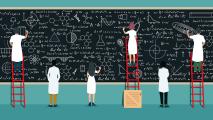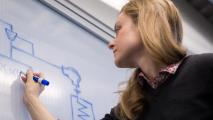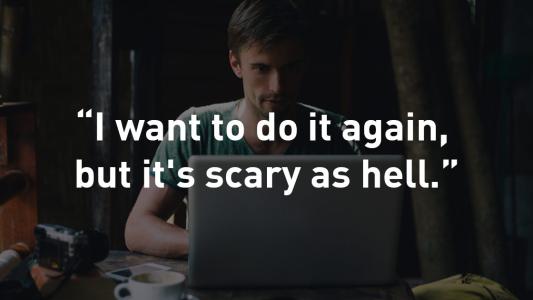Want to see into the future? We’d all like to, and experts do their best to forecast what’s to come. But, still, even they can get it wrong…like, really wrong. Some of the predictions might look outlandish now, but at the time they actually seemed quite plausible. And that’s the point: the world is complex and the future, well, it loves to surprise you.
We partnered with GOOD to take a trip back through history to explore some of the bad predictions made by some of our brightest minds.
“We’re All Gonna Starve!”
In the 1960’s, Paul Ehrlich was a celebrity — a bestselling book, a speaking tour, regular appearances on the Tonight Show. But Ehrlich wasn’t an actor or singer. He was a entomologist turned overpopulation alarmist. His doomsday message of dwindling food supplies and exploding populations caught fire in the public imagination. So why didn’t you ever hear about a great global starvation? It’s thanks to a brilliant food scientist’s ingenious breakthrough that turned Ehrlich’s forecast on its head.
“Beware the Frankenbabies!”
When British biologist Robert Edwards saw his children in the arms of a couple unable to conceive, he decided to take on an ambitious mission: curing human infertility. Ten years later, Edwards and Dr. Patrick Steptoe unveiled their groundbreaking procedure called in-vitro fertilization. But rather than being heralded as a miracle of modern science, the procedure was met with grave warnings from experts and a hysterical public afraid of living in a world surrounded by so-called “Frankenbabies.”
“The Y2K Bug is Going to Bite!”
January 31st, 1999 was unlike any other New Year’s Eve in history. As revelers partied into the night, some people were bracing themselves for the end of the world. They were worried about the Y2K bug, a programming flaw that many believed, at the stroke of midnight, would collapse computer networks around the world, putting corporations, governments, and global stability in jeopardy. But when the clock struck midnight, nothing really happened. Did we narrowly avoid the apocalypse because of some world-saving last minute de-bugging? Or was the worldwide panic just way off base?





